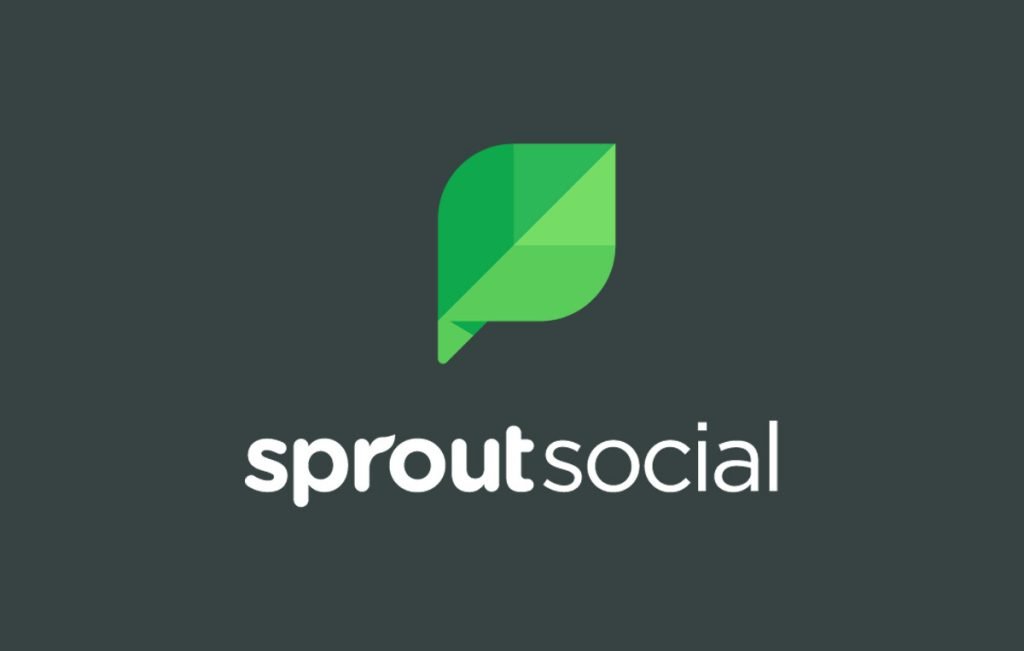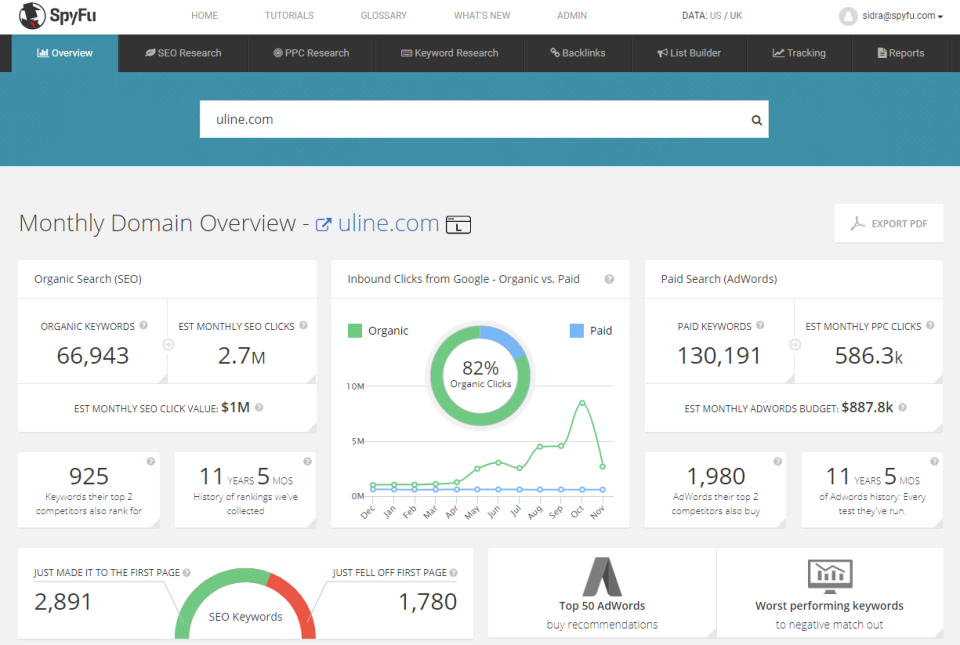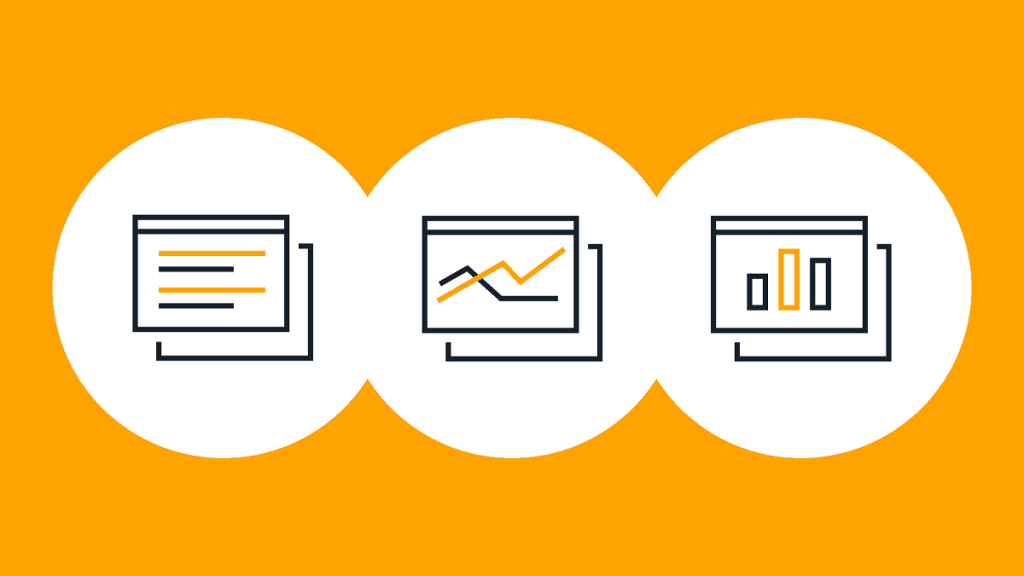Competitive analysis is a key component of a good SEO strategy. SEO Competitor Analysis Tools are very valuable at typically affordable prices. They enable users to do more tasks in less time, and many may discover that the tools are so beneficial that they ultimately pay for themselves. These are well-liked SEO competition analysis tools, together with information on how much they cost and how to utilize them to improve your SEO strategy’s performance.
No matter what sector you work in, marketing is a competition to get your target audience’s attention. These days, there are a lot of marketing outlets accessible, so there is sometimes intense rivalry. Consider it. Competition for followers, revenue, ad placement, and traffic. The list is endless. Furthermore, even if the concept of competitive analysis isn’t really “fun,” it’s an essential component of business intelligence.
Top SEO Competitor Analysis Tools
1. Sprout Social

There is no better place to start for competitor analysis than social media, which is rated as the best platform for consumer connection. With Sprout Social, you can analyze rivals’ social media performance from a variety of perspectives and information sources.
With numerous data points that you can monitor across Facebook, Twitter, and Instagram, Sprout’s collection of competitive reports may help you evaluate and improve your social media strategy.
You can compare your progress to the average of the profiles being compared or get a sneak look at what your rivals are posting—all without having to deal with time-consuming manual research or disorganized spreadsheets.
Features:
- Collaboration Tools.
- Communication Management.
- Competitive Analysis.
- Competitor Monitoring.
- Contact Management.
- Content Library.
- Content Management.
- Conversion Tracking.
- Customer Engagement.
- Customer Experience Management.
- Customer History.
- Customer Segmentation.
- Customer Social Profiles.
- Customer Support.
- Customizable Branding.
- Customizable Reports.
- Dashboard and many more.
Pricing:
- Free trial available.
- Standard: $89 per user/month.
- Professional: $149 per user/month.
- Advanced: $249 per user/month.
2. Semrush
It would be like attempting to cook without ingredients to do a competition analysis without SEO Competitor Analysis Tools Semrush or Ahrefs. You won’t have the crucial SEO insights to justify the work you put into your content. For example, you won’t have a lot of concrete data about the traffic, backlinks, and ranking keywords of your competitors. That just covers the essentials. Additionally, it provides several specialized tools for competitive analysis.
Semrush starts by listing the websites that compete with you for comparable keyword searches, or your organic rivals. After determining who your rivals are, you can use Semrush’s Keyword Gap to see where your SEO content strategy is falling behind.
Take HostGator’s content strategy, for example, and compare it to those of Bluehost, NameCheap, Domain.com, and SiteGround. The results show that HostGator isn’t ranking for keywords related to traceroute, which seems like a huge missed opportunity, as traceroute is a useful command for website owners looking to troubleshoot network issues on their websites. Similar to that, there are a ton of these keywords for your website.
Features:
- Calendar Management.
- Campaign Analytics.
- Campaign Management.
- Campaign Planning.
- Campaign Scheduling.
- Campaign Tracking.
- Channel Management.
- Charting.
- Client Management.
- Collaboration Tools.
- Commenting/Notes.
- Competitive Analysis.
- Competitor Monitoring.
- Content Management.
- Conversion Tracking and many more.
Pricing:
- Free plan available.
- Pro: $129.95/month.
- Guru: $249.95/month.
- Business: $499.95/month.
3. Kompyte
With Kompyte, you can easily monitor competitor updates and stay informed about what other brands in your industry are doing online. Additionally, Kompyte helps create sales battle cards based on your competitive findings that your team can use to close sales.
Kompyte is a competitive intelligence tool that automatically pulls updates from competitors’ websites, review sites, content, social media, ads, job openings, and more into a single, easy-to-monitor dashboard.
Features:
- Campaign Analytics.
- Campaign Management.
- Collaboration Tools.
- Competitive Analysis.
- Customizable Fields.
- Customizable Reports.
- Customizable Templates.
- Dashboard.
- Data Import/Export.
- Data Visualization.
- Document Management.
- Engagement Tracking.
- For Sales Teams/Organizations.
- Key Performance Indicators.
- Keyword Tracking.
- Monitoring.
- Performance Management and many more.
Pricing:
- Free demo available.
- Contact sales for detailed pricing.
4. Ahrefs
Ahrefs and Semrush are like McDonald’s and Burger King in the SEO industry. Despite having differing preferences, both are powerful players with comparable offers. Though somewhat differently, you can do almost all you can with Semrush using Ahrefs.
For example, by visiting Competing Domains, you may locate the rivals in organic search results. Additionally, you may attempt Ahrefs’s Content Gap if you want to take advantage of the keyword gap. In a similar vein, you may research the backlink profiles of your rivals.
But there are some subtleties. Ahrefs, for example, provides less information about keywords than Semrush does. While it does provide search volume, keyword difficulty, cost-per-click, and clicks, it does not provide SERP characteristics, keyword trends, competitive density, or other useful information. On the other hand, Ahrefs is renowned for its database of backlinks.
Features:
- Backlink Monitoring.
- Competitive Analysis.
- Dashboard.
- Data Import/Export.
- Data Visualization.
- Keyword Analysis.
- Keyword Discovery.
- Keyword Rank Tracking.
- Keyword Research Tools.
- Keyword Tracking.
- Link Management.
- Localization Automation.
- Mobile Keywords.
- Performance Metrics and many more.
Pricing:
- Free Site Audit and Site Explorer tools for website owners.
- Monthly subscriptions: $99/month (Personal) and $999/month (Agency).
- Annual subscriptions: $82/month (Personal) and $832/month (Agency).
5. SE Ranking
You may outrank your online competitors by using SE Ranking, one of the Best SEO Competitive Analysis Tools to get all the essential SEO details on any domain’s activity in both organic and sponsored search.
This competition analysis tool for SEO may be used to quickly find out how many visitors your competitors have (including global, regional, and country-specific statistics), what keywords they target on their sites, which referring domains provide them backlinks, and what kind of advertisements they run, to mention a few things.
Additionally, you may see past data, spot trends, and gather enough knowledge to create an effective SEO plan for your website or the website of a customer.
Features:
- Campaign Management.
- Categorization/Grouping.
- Competitive Analysis.
- Content Management.
- Customizable Branding.
- Customizable Reports.
- Customizable Templates.
- Dashboard.
- Data Import/Export.
- Data Visualization.
- Drag & Drop.
- Engagement Tracking.
- For Marketing and Advertising.
- For PPC Campaigns.
- Geo Rankings.
- Google Analytics Integration.
- Keyword Analysis and many more.
Pricing:
- Free trial available.
Daily ranking checks:
- Essential: $55/month.
- Pro: $109/month.
- Business: $239/month.
Every 3 days checks:
- Essential $31.2/month.
- Pro: $71.2/month.
- Business: $151/month.
Weekly ranking checks:
- Essential: $23.4/month.
- Pro: $53.4/month.
- Business: $113/month.
6. Spyfu

Utilizing Spyfu for Google AdWords is another excellent option. Competitors’ advertising history is also visible to you. This enables you to examine how their adverts have changed. It’s a lot simpler for you if you reverse engineer successful advertisements. An effective advertisement usually runs for many months or even years. Nobody spends money on direct-response advertisements.
One of the most well-known keyword research tools available is this one. With Spyfu, you can look at the broad and in-depth keywords that websites in your field are using. This is beneficial for search engine optimization. It may monitor your rating over time, as well as that of your rivals. The history of keyword rankings is also shown.
Features:
- API.
- Backlink Monitoring.
- Campaign Management.
- Competitive Analysis.
- Customizable Branding.
- For PPC Campaigns.
- Keyword Analysis.
- Keyword Discovery.
- Keyword Rank Tracking.
- Keyword Research Tools.
- Keyword Tracking.
- ROI Tracking.
Pricing:
- Free plan available.
- Basic: $49/month.
- Professional: $75/month.
- Agency: $833/month.
7. BuzzSumo
Examine how the social media audience interacts with the distinct pieces of material if you’re seeking to figure out how to create viral content. That’s precisely what BuzzSumo provides.
BuzzSumo allows you to examine the performance of rivals’ material in terms of viewership. For example, you may track the number of backlinks and social media shares it receives. It may be further filtered by time, authors, networks, and other criteria.
And that’s hardly the start. Additionally, you may utilize the tool to learn from the competition or compare your brand to that of your rivals to identify where you’re doing better or worse than them. For example, you could produce more interesting pieces with a why-focused emphasis than your rivals, but you might not produce as many shareable infographics.
Features:
- Categorization/Grouping.
- Click Tracking.
- Competitive Analysis.
- Competitor Monitoring.
- Contact Management.
- Content Library.
- Content Management.
- Conversion Tracking.
- Customer Engagement.
- Customizable Reports.
- Dashboard.
- Dashboard Creation.
- Data Import/Export.
- Data Visualization.
- Email Alerts.
- Engagement Tracking and many more.
Pricing:
- Free trial available.
- Content Creation: $159/month.
- PR & Comms: $239/month.
- Suite: $399/month.
- Enterprise: $999/month.
8. Similarweb
On its site, Similarweb provides a free tool for researching competitors. All you need to do is enter the URL of your rival to get an advanced report. Similarweb is perfect for SaaS companies since it lets you search for websites, iOS applications, and Android apps. In addition to much more, the free and one of the top SEO Competitor Analysis Tools will provide your competitors’ ratings, bounce rates, and visit length.
Although it’s a wonderful place to start, the free report generally won’t have enough information to support you in developing a stronger digital marketing plan. For competition analysis, check out Similarweb’s paid Digital Marketing Intelligence SEO tool.
Apart from competition analysis, it also shows affiliate, PPC, and keyword statistics. Similarweb might be of use to you when implementing an affiliate marketing plan as it shows you precisely what your competitors are doing.
Features:
- Benchmarking.
- Campaign Analytics.
- Campaign Management.
- Campaign Tracking.
- Charting.
- Competitive Analysis.
- Conversion Rate Optimization.
- Conversion Tracking.
- Customer Journey Mapping.
- Data Visualization.
- Display Ad Management.
- Engagement Tracking.
- Goal Setting/Tracking.
- Keyword Research Tools.
- Keyword Tracking.
- Lead Management and many more.
Pricing:
- Free version available.
- Pro: $167 per month.
Why Do You Need SEO Competitor Analysis Tools
SEO is an ongoing process. To guide your SEO strategy, you must have a thorough grasp of the keywords, backlinks, content, and other elements used by your rivals. Yes, SEO tools often cost money, but the investment is worth it. Companies who use SEO Competitor Analysis Tools can:
Create better content: Examine the material produced by your rivals to learn what makes them successful. Competitor analysis tools may assist you in learning how to produce high-ranking content that your target audience will be interested in reading, whether you want to use them for content marketing optimization or to generate fresh material.
Target top keywords: The never-ending search for the ideal keyword opportunity might often seem like SEO. To improve the performance of your content, you may identify organic keywords with the ideal balance of search volume and competitiveness by using a high-quality keyword research tool. You may even watch your keyword ranks over time with the aid of certain tools.
Improve their search rankings: You cannot choose to ignore what other businesses are doing if you want the greatest SEO strategy for your company. Your domain authority and rankings will gradually rise as you publish better content that meets the needs of both readers and search engines.
FAQ
Q: What is the main purpose of competitor analysis?
A: A competitor analysis, often called a competitive analysis, is the process of locating rival companies in your market and learning about their various advertising approaches. By comparing this data to that of each rival, you may determine the advantages and disadvantages of your business.
Q: What is competitive analysis for off-page SEO?
A: By doing off-page SEO competitor research, you may discover your competitors’ keywords and have a thorough understanding of the marketing strategies they use.
Q: What drawbacks does competitor analysis have?
A: You may not be ready to process what you discover. Due to its very nature, a competitive analysis may result in both positive and negative feedback for a competing brand and your product. Sorting through these kinds of data may be discouraging and challenging.

